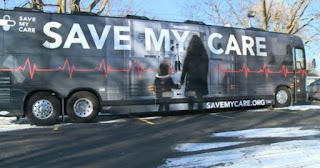A Change is Gonna Come
By Christina Clift
The Memphis Center for Independent Living has been a part of the community since its founding in 1985. Since then, we have worked to facilitate the full integration of people with disabilities into every aspect of community life. But our mission has not been achieved with physical, attitudinal, and socio-economic barriers preventing people with disabilities from reaching their fullest potential. So, we still have work to do.
Unfortunately, many people are under a mistaken belief that the Memphis Center for Independent Living (MCIL) provides housing. That could not be further from the truth. Although we can assist consumers to locate housing, we are prohibited by federal law to own housing.
When MCIL was founded, we believed that our name would reflect who we are. A center that served the city of Memphis using the Independent Living philosophy which simply means that people with disabilities are the best experts about their needs, be involved in making decisions, and organize for political power. After all, “independent living” had not become a buzz word back then. Now, you see “independent living” everywhere, especially when talking about housing for seniors.
In 2020 just before the pandemic began MCIL embarked on what became a two and a half year strategic planning process. Several changes are targeted to take disability access and our non-profit recognition to the next level. Rebranding our virtual agency is the first piece of a capacity building plan to increase visibility, services, staffing, and financial security.
A new revitalized mission has started the groundwork to Advocate, Educate and Unite Communities. Over the next months we will be working on our new name and logo. We want the input of the people we serve to help us.
On June 1st we will begin a contest to create a name that will encompass this organizations true value, service, cross-disability, consumer-directed, community leadership and contributions. A lot to ask from one name but only one piece of a long-needed rebranding campaign.
Do you have an exciting and innovative idea for our name?
You can submit your idea by visiting https://forms.gle/nG1JFjNgGcG5V1fH9.
We look forward to reading your ideas and we thank you for your participation to ensure that MCIL’s new brand is developed using the Independent Living Philosophy.







